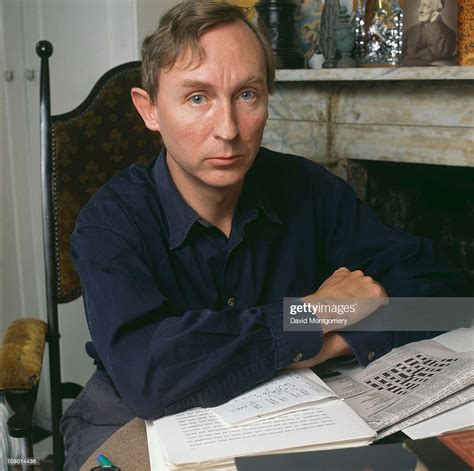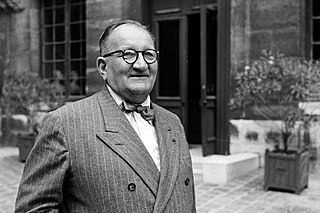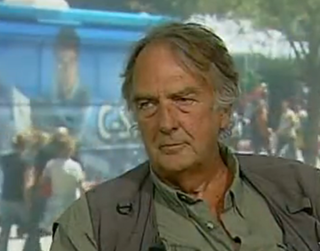A Quote by Paulo Coelho
Love does not ask many questions, because with thinking comes fear. This might be the fear of being scorned, of being rejected, or of breaking the spell. However ridiculous this may seem, that is how it is. This is why one does not ask, one acts.
Related Quotes
You shouldn't have asked," I said. "Love doesn't ask many questions, because if we stop to think we become fearful. It's an inexplicable fear; it's difficult even to describe it. Maybe it's the fear of being scorned, of not being accepted, or of breaking the spell. It's ridiculous, but that's the way it is. That's why you don't ask-you act. As you've said many times, you have to take risks.
When Christians start thinking about Jesus, things start breaking down, they lose their faith. It's perfectly possible to go to church every Sunday and not ask any questions, just because you like it as a way of life. They fear that if they ask questions they'll lose their Christ, the very linchpin of their religion.
Why are there organized beings? Why is there something rather than nothing? Here again, I fully understand a scientist who refuses to ask it. He is welcome to tell me that the question does not make sense. Scientifically speaking, it does not. Metaphysically speaking, however, it does. Science can account for many things in the world; it may some day account for all that which the world of phenomena actually is. But why anything at all is, or exists, science knows not, precisely because it cannot even ask the question.
Of course it does, Jomes answered earnestly. Many of life's treasures remain hidden from us simply because we never search for them. Often we do not ask the proper questions that might lead us to the answer to all our challenges. We are so caught up in fear and regret, that hope seems a foolish endeavor. Proof of hope, however, is not only possible, it is an overlooked law of the universe.
We ask ourselves all kinds of questions, such as why does a peacock have such beautiful feathers, and we may answer that he needs the feathers to impress a female peacock, but then we ask ourselves, and why is there a peacock? And then we ask, why is there anything living? And then we ask, why is there anything at all? And if you tell some advocate of scientism that the answer is a secret, he will go white hot and write a book. But it is a secret. And the experience of living with the secret and thinking about it is in itself a kind of faith.
Courage is resistance to fear, mastery of fear - not absence of fear. So many look to eradicate fear from their lives, when that is an impossible task. You can certainly experience moments in absence of fear, however accept that fear will be with you whenever you are in the process of living creatively. The challenge is to go ahead regardless, simply notice the feeling and manage being courageous.
Ask not of me, love, what is love?
Ask what is good of God above;
Ask of the great sun what is light;
Ask what is darkness of the night;
Ask sin of what may be forgiven;
Ask what is happiness of heaven;
Ask what is folly of the crowd;
Ask what is fashion of the shroud;
Ask what is sweetness of thy kiss;
Ask of thyself what beauty is.
You can’t take everything on. That’s why when people ask how does this film fit into my oeuvre. I say 'I don’t know. I don’t think in those terms’. If I did, I might become incapacitated by fear . . . How do you eat a whale? One bite at a time. How do you shoot a 150-day movie? You shoot it one day at a time.
I remember coming on my first set and it being a playground of things I wanted to ask questions about: cameras and lenses and what the lenses do, what's the focus puller doing and how does that work? Why is there less margin for error when there's less light? I was always asking questions and watching directors closely.
Being gay, you're kind of forced to ask, I suppose, very existential questions from a very, very early age. Your identity becomes so important to you because you're trying to understand it, and, I think, from the age of, like, 9, you're being forced to ask questions... that other kids maybe don't have to ask.
Grown-ups love figures... When you tell them you've made a new friend they never ask you any questions about essential matters. They never say to you "What does his voice sound like? What games does he love best? Does he collect butterflies? " Instead they demand "How old is he? How much does he weigh? How much money does his father make? " Only from these figures do they think they have learned anything about him.
Systematic theology will ask questions like "What are the attributes of God? What is sin? What does the cross achieve?" Biblical theology tends to ask questions such as "What is the theology of the prophecy of Isaiah? What do we learn from John's Gospel? How does the theme of the temple work itself out across the entire Bible?" Both approaches are legitimate; both are important. They are mutually complementary.





































